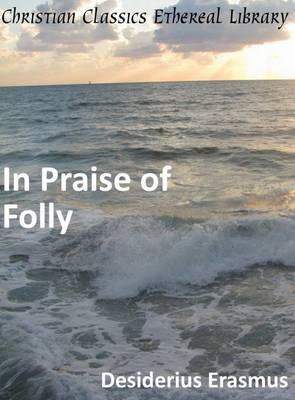Erasmus displays cunning wit in his satire In Praise of Folly . Erasmus' characterization of Folly is cleverly constructed, and the irony in his essay is thick. Folly (the essay's central character) praises herself endlessly, arguing that life would be dull and distasteful without her. Of earthly existence, Folly pompously states, "you'll find nothing frolic or fortunate that it owes not to me." Folly venerates her comrades, Self Love, Flattery, Oblivion, and Pleasure, whom she believes promote friendship and tolerance within society. Above all, Folly lauds self-deception and foolishness, finding Biblical support in favor of her beliefs. In conclusion, Folly speaks directly of Christianity, regarding its religious authority and practices. Erasmus adopts a pure Latin style commonly shared by many Renaissance humanist writers. In addition to its rhetorical brilliance, In Praise of Folly makes a fierce statement about 16th century Christian ideals. -Emmalon Davis, CCEL Staff Writer
- ISBN10 161025077X
- ISBN13 9781610250771
- Publish Date 7 October 2010 (first published 1 August 1991)
- Publish Status Active
- Publish Country US
- Imprint Christian Classics Ethereal Library
- Format eBook
- Language English
